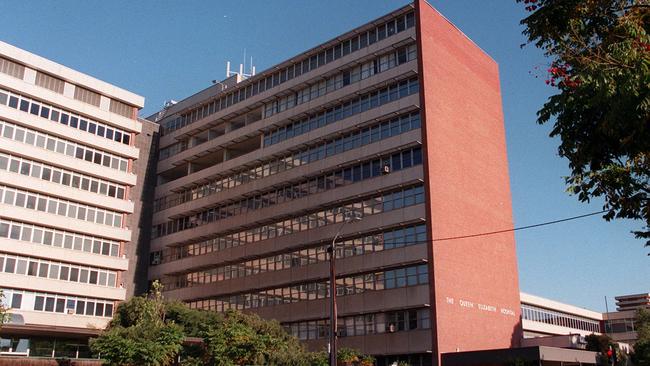ED patients transferred and elective surgery cancelled due to faulty airconditioner at QEH
EMERGENCY patients are being transferred and elective surgery cases cancelled at the Queen Elizabeth Hospital after faulty airconditioning failed, putting lives at risk for the second time this year.

SA News
Don't miss out on the headlines from SA News. Followed categories will be added to My News.
- Electronic records system crashes at QEH
- Former Socceroo ‘should still be alive’
- Why the Government wants to overhaul SA’s health system
EMERGENCY patients are being transferred and elective surgery cases cancelled at the Queen Elizabeth Hospital after faulty airconditioning failed, putting lives at risk for the second time this year.
Doctors are “shocked” and “horrified” that the system was not replaced or fixed earlier, and warn of long surgery delays and adverse patient outcomes in an already stretched health system.
Adelaide’s unusually humid, hot weather is the cause of the failure that occurred because the system cannot remove moisture in the air.
The system that services the hospital’s operating theatres stopped working on Tuesday, forcing emergency surgery cases to be transferred to the Royal Adelaide Hospital.
The latest breakdown comes just months after the system malfunctioned in March, which meant 100 elective surgeries were postponed during an ongoing spell of humid weather.
In October, SA Health announced the system was being “upgraded” and the department was confident the unit would be running smoothly in time for summer.
SA Salaried Medical Officers Association president Dr David Pope said SA Health had assured staff the system would be fixed before summer.
“It’s a complete shock that this problem hasn’t been fixed – doctors are horrified,” he said.
“It (the system) should have been replaced.
“From time to time we’re going to have heat and humidity. We can’t have hospitals that can’t function 100 per cent of the time.
“They (surgeons) can’t do the operation with the airconditioning not operating – it wouldn’t be safe.”
Dr Pope said patient transfers and delayed elective surgery, which could range between anything that includes removing a breast lump to prostate surgery, put patients at unnecessary risk.
“Delayed surgery often leads to loss of long-term function and potentially risk for life,” he said.
“The flow-on effects for the rest of the system are quite serious – the Royal Adelaide Hospital is already struggling to cope and they need to move patients, which needs ambulances.”
Opposition health spokesman Stephen Wade said the failure “clearly demonstrates the Queen Elizabeth Hospital hasn’t been properly maintained” and was an “ageing asset”.
Central Adelaide Local Health Network chief executive officer Julia Squire told The Advertiser:“We are currently upgrading the airconditioning unit that services operating theatres at the Queen Elizabeth Hospital, to address the humidity issues”.
A total of two emergency patients have already been transferred to the RAH and a further two elective surgery cases were postponed until next week.
Ms Squire said the “first phase” of the upgrade will be complete in January 2017.
“The situation is being monitored hourly and surgery will be reinstated at the Queen Elizabeth Hospital once the humidity levels fall to a normal range,” she said.
The airconditioner malfunction comes just days after The Advertiser highlighted numerous patients waited for more than 24 hours for a bed across the state’s major hospitals during the festive season.
On Wednesday, emergency departments remained near or over capacity as they struggled to cope with patient demand and lack of beds during the festive break.


